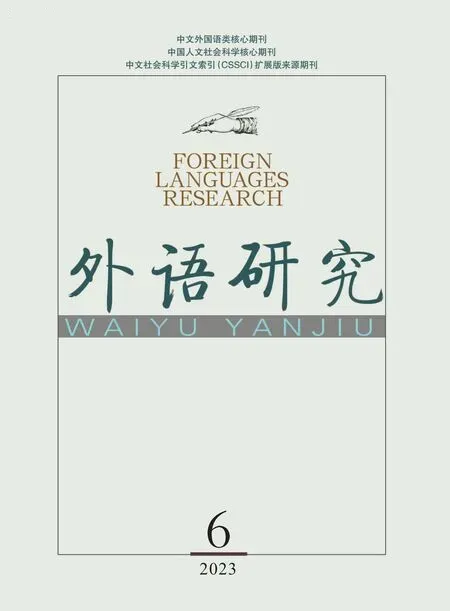Abstracts of Key Papers in Current Issue
The Compatibility and Complementarity of SFL and CL in CDA
by XIN Bin, p.1
There have been constant attempts at accounting for language and its use either from a socio-cultural point of view or from a cognitive-psychological perspective,and Systemic Functional Linguistics(SFL)and Cognitive Linguistics(CL) are representatives of the two general perspectives respectively. It is believed in Critical Discourse Analysis(CDA) that SFL is better applicable to the description stage of analysis and CL is more suited to the interpretation stage,though it seems CDA needs both at the explanation stage of analysis.This article aims to elucidate the compatibility and complementarity of SFL and CL in CDA.It consists of three sections.The first section elucidates the main reasons for SFL to be taken as the most important theoretical foundation of both critical linguistics and CDA from their very beginnings; the second section tries to make a distinction between SFL and CL as representing two different views of meaning with the former giving greater emphasis on the social and interactional nature of meaning and language use;the third section argues for the compatibility and complementarity of SFL and CL in CDA.
Key words:Key words: SFL, CL, CDA, compatibility, complementarity
Language Teachers’Assessment Literacy:Connotation,Framework and Prospect
by GAO Xuyang & SHENG Yaqiao, p.44
Language teachers’assessment literacy is a crucial part of language teachers’self-development and students’learning,and has become a hotspot in the field of language testing in China.Based on the clarification of its connotation,this paper proposes a framework of language teachers’assessment literacy from three dimensions of conceptions of assessment, assessment knowledge and assessment skills and ten components in the hope of providing inspiration and reference for the basic foreign language teaching reform and development.
Key words:language teachers, language assessment literacy, assessment framework, education assessment
Translation Theoretical Innovation in China in a New Era: Review and Prospects
by ZHANG Wei, p.66
Translation theorizing has been a significant characteristic of China’s translation studies in the new era. By presenting the major ideas or theories proposed by Chinese translation scholars in the last few decades, the paper highlights the special features of these translation theories in terms of innovation mentality, cross-disciplinary vision,and local translation practice. In addition, the paper examines the defects in translation theoretical discourse in China, focusing on such problems as theoretical originality, system stability, core conceptualization and application.The paper concludes by suggesting direction and approaches for theoretical translation exploration in China.
Key words:translation theory, innovation, problems, solutions
Environmental Injustice in DeLillo’s White Noise
by LI Huaibo, p.92
As for the environmental catastrophe in White Noise, commentators have studied it a lot from the perspective of ecocriticism. However, there is a lack of in-depth research on the environmental injustice caused by environmental disasters and its relationship with postmodern simulacra culture. This article focuses on the main character’s environmental injustice stereotype and the environmental injustice encountered by disadvantaged groups in the environmental disaster, explains the environmental injustice caused by the disparate impact of the environmental disaster with the theories of environmental justice and simulacra representations, and explores how postmodern simulacra culture’s representation of the self and reality affects people’s responses to environmental disasters, and reveals how the simulacra reality further exacerbates environmental injustice.This has implications for further thinking about how to advance environmental justice.
Key words: White Noise, DeLillo, environmental justice and injustice, simulacra reality

